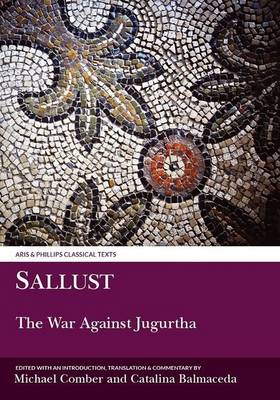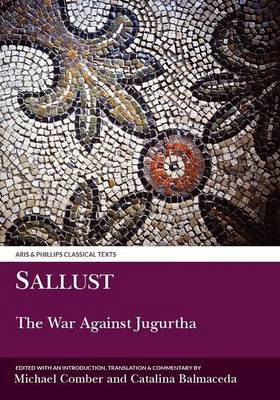
- Retrait gratuit dans votre magasin Club
- 7.000.000 titres dans notre catalogue
- Payer en toute sécurité
- Toujours un magasin près de chez vous
- Retrait gratuit dans votre magasin Club
- 7.000.0000 titres dans notre catalogue
- Payer en toute sécurité
- Toujours un magasin près de chez vous
Description
The Roman historian C. Sallustius Crispus, better known as Sallust, decided to write about the war against the Numidian king Jugurtha, 'because it was a long and cruel struggle in which fortune swung from side to side; and secondly, because it was then for the first time that a stand was taken against the arrogance of the nobles'. For Sallust, the Jugurthine War clearly revealed the problems of the Republic at that time. The fact that a man such as Jugurtha could rise to power by buying Roman military and civil officials reflected a moral crisis in Roman politics. Sallust's account of the nobles' tactics in conducting the war, the rise of the homo novus, Marius, and the beginnings of Sulla's career are particularly effective at showing how Romans sought individual power and advantages often at the expense of the state. Sallust is determined to illustrate decay, and with a successful choice of words and phrases he will achieve not only a powerful exposition of the nature and propagation of political decline, but also the congruence between the sickly condition of the state and the mores of its citizens. Sallust is the creator of a particular manner of writing history. His style has attracted attention and discussion both in ancient times and nowadays because it shows itself at the same time as archaic and innovatory, abrupt and artistic. The translation of this new edition seeks to be faithful to that characteristic Sallustian style and the commentary aims to be useful not only to specialists, but also to readers who know little or no Latin. The introduction deals with Sallust's life and career as a historian, the Jugurthine war itself, and also with the important Sallustian topic of virtus and the development of the ideology of the 'new man'.
Spécifications
Parties prenantes
- Auteur(s) :
- Editeur:
Contenu
- Nombre de pages :
- 290
- Langue:
- Anglais
- Collection :
Caractéristiques
- EAN:
- 9780856686375
- Date de parution :
- 12-02-09
- Format:
- Livre relié
- Format numérique:
- Genaaid
- Dimensions :
- 147 mm x 206 mm
- Poids :
- 521 g

Les avis
Nous publions uniquement les avis qui respectent les conditions requises. Consultez nos conditions pour les avis.






